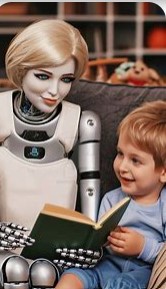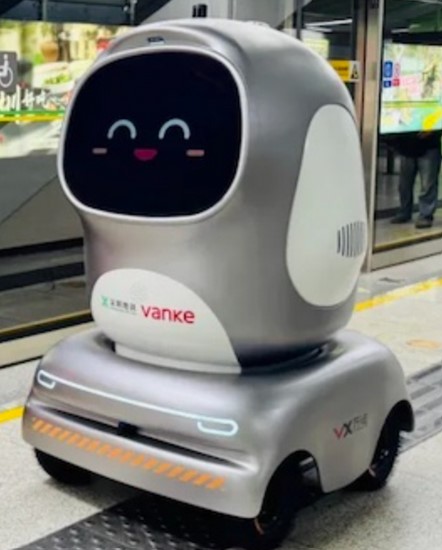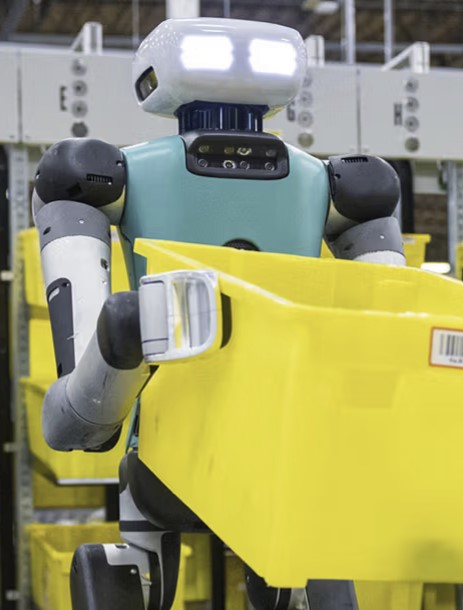Mariner apologizes to readers, family and friends who have heard enough castigation by alter ego Amos against smartphones and associated displacement of human interaction. But he has been challenged (frequently) again. So here is why smartphones are dangerous, then mariner will rejoin Nosey Mole:
Smartphones have a high convenience factor similar to air conditioning and automobiles, that is, it would be difficult to do without them. However, air conditioning and automobiles actually may contribute to improving Homo sapiens behavior. Smartphones will not.
In recent posts mariner has adopted the term ‘social accountability’ to represent the natural need for, dependence on and collaboration with other humans. These behaviors are in line with anthropological and psychological descriptions accepted universally today. Briefly, we are primates, we are mammals, we are capable of imagination.
Hundreds of thousand of years ago, primates were simple forest creatures whose social life did not go far beyond being responsible for supporting offspring until the child could go on its own. It didn’t take long before the mammalian instincts led to herding – yes, just like cows, horses and monkeys. Herding (let’s switch to tribes) is a defensive behavior to achieve several things: sharing threats and defeating them; sharing the burdens of raising offspring; identifying the best behavior to continue to be accepted by the tribe; and to have a realistic understanding of the world around them – a term used in psychology is ‘agency’.
To translate the last paragraph into conversational words, it is important to be engaged continually in interpersonal activity, engage with tribe members to resolve simple matters like food gathering, emotional balance not sustainable in isolation, learning what is currently important to the tribe, and exercising a complex brain to understand what is real and what is fantasy. A failed example today are the few who still believe the world is flat.
What everything written above means is ‘socializing with the tribe is what pulls together and identifies something called ‘reality’. Reality is not just an outside assumption, it also is an assumption of the subconscious brain, which must interpret whether to run, to watch or to take a pee. The tools of tribe association are our emotions, e.g., love, compassion, ritual, defensiveness and survivability. Communication with other humans is mandatory to identify a functional reality.
Mariner has experienced several families where Alexa has more conversation time with a person than their spouse has with them. It is a national news item that teenagers especially have emotional difficulties because the smartphone defines their reality and even tells them what they look like or how they should behave – without validation from the tribe. The smartphone has no ability to educate an individual with respect to their mental and personal reality. Yet it is so tempting that a brother and sister will sit on a sofa and communicate through an emotionless devise rather than actually use their own natural interpretations (AKA reality) based on tone of voice, facial expression, muscular tension or internal brain interpretations.
Another defect of the smartphone is personal isolation. Mariner attended a 100th birthday celebration recently. He sat at a dinner table with six chairs; the other chairs were filled by immediate family to the birthday celebrant. There was vibrant conversation about the times and experiences of the family – except for one person. She never spoke a word, never looked up and had no interaction with her own immediate family. Without interruption, she thumbed her way through an hour and a half of centenary celebration.
A similar dysfunction is the individual who will engage the smartphone at every pause in conversation to ask for detailed information from the smartphone then assuage their ego by expressing unnecessary information.
As to tribe relations, psychologically it is beneficial to acknowledge the tribe and its importance to reality. By doing grocery shopping at a supermarket, unconsciously one is aware that it takes a lot of tribe members to provide food and other essentials, that there is a unified reality that subconsciously builds self confidence and assures safety within the shopper’s reality. Shopping on the smartphone provides no tribe bonding and offers no way to sustain a person’s awareness of the world around them.
Which leads to the greatest danger of smartphones: interpreter of a person’s reality. Readers may recall that Mark Zuckerberg’s fantasy was to have everyone live in an online village designed just for them. Using publicly available data, the kinds of stores, recreational activities and even family members were all available at this online ‘reality’. Mariner can’t avoid saying it – this is identical to the lives buried in caskets in the movie ‘Matrix’.
Is domination by computers inevitable? Bill Gates thinks so. For what it’s worth, mariner does, too.
Ancient Mariner
![]()

 companions. The same could happen with younger kids.
companions. The same could happen with younger kids. loved ones may be close at hand. All these efforts to invade Homo’s anthropomorphic reality are just a step toward Armageddon. The next step is not to bother with babies – they’re too much trouble – AI bots may offer an age-seasoned teenage bot instead – or, if the reader is so inclined, adult bots (male and female) are available and quite charming.
loved ones may be close at hand. All these efforts to invade Homo’s anthropomorphic reality are just a step toward Armageddon. The next step is not to bother with babies – they’re too much trouble – AI bots may offer an age-seasoned teenage bot instead – or, if the reader is so inclined, adult bots (male and female) are available and quite charming.
